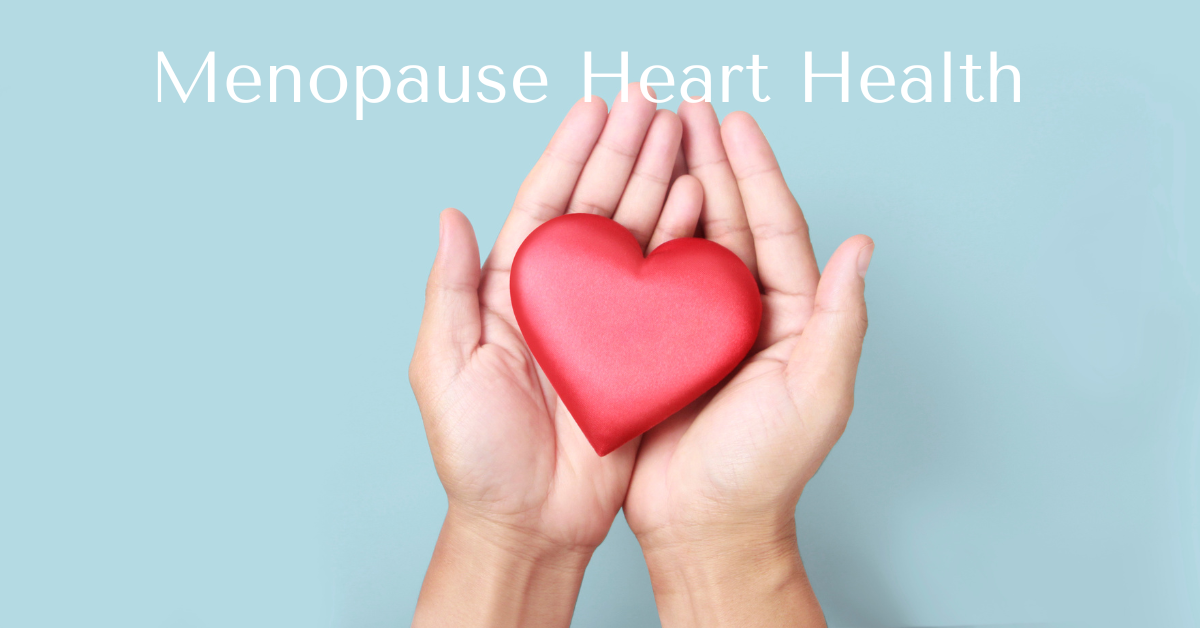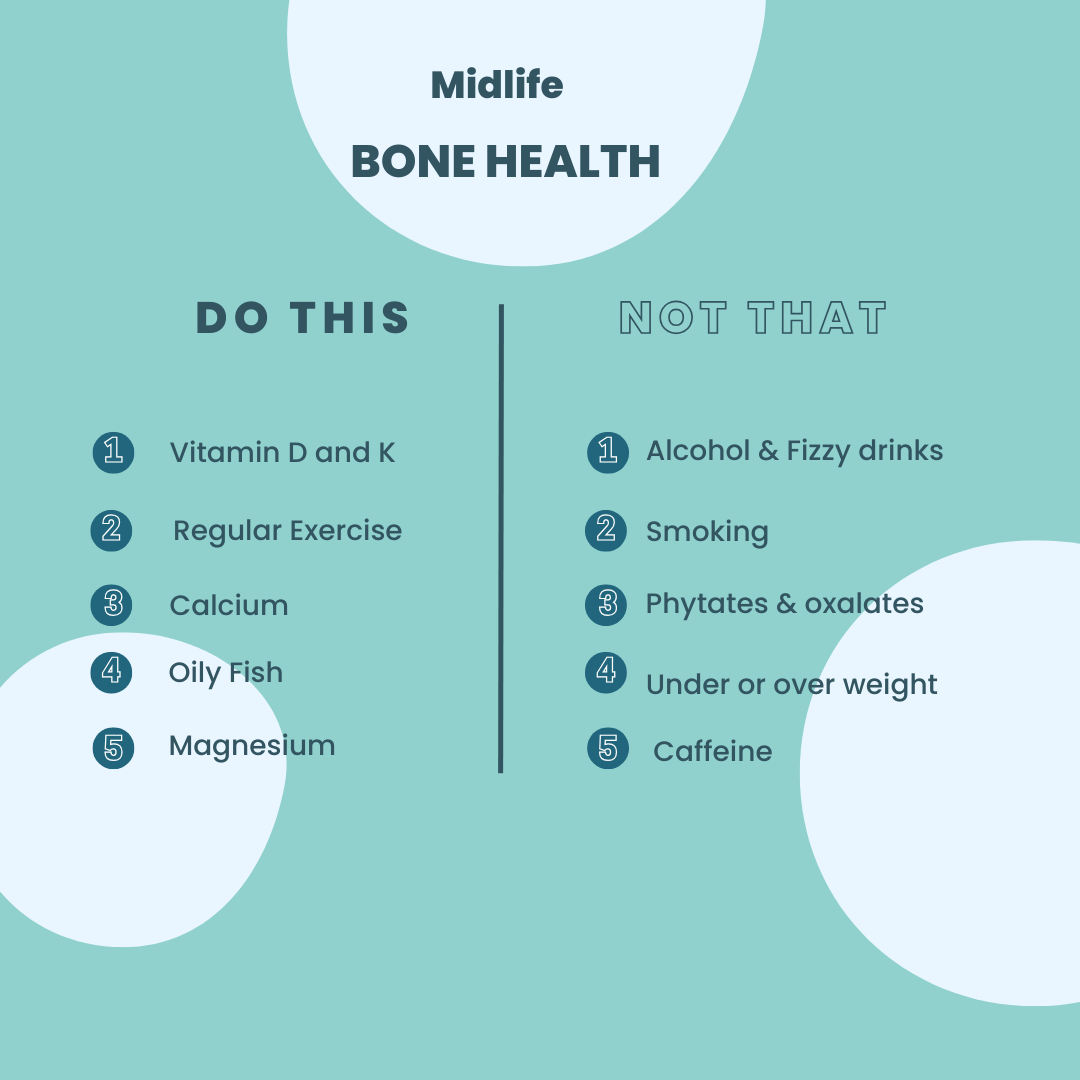What Every Woman Should Know
Understanding the impact of menopause and heart health is something every woman should know. Menopause is a significant phase in a woman’s life, bringing changes that extend far beyond hot flushes and mood swings. One area that often doesn’t get enough attention is the link between menopause and heart health – Cardiovascular Disease (CVD). It is a leading cause of death in women, with many unaware that their risk of heart disease increases after menopause. Shockingly, women are twice as likely to die from a heart attack after menopause than from breast cancer. Yet, discussions around menopause and ageing often overlook heart health.
For too long, heart disease has been seen as a “man’s problem,” but the reality is that cardiovascular disease is the number one cause of death in women worldwide. Many women, and even some healthcare professionals, fail to recognise the signs and risk factors, leading to delays in diagnosis and treatment. Symptoms of heart disease can present differently in women than in men, making awareness even more critical.
Hormonal shifts, inflammation, and lifestyle factors all play a role in heart health, but the good news is that up to 80 percent of cardiovascular disease is preventable through diet and lifestyle changes. In this blog, we’ll explore what cardiovascular disease is, how menopause impacts heart health, and what you can do to support your heart naturally.
Menopause and Heart Health- Cardiovascular Disease
Cardiovascular disease (CVD) is an umbrella term for conditions that affect the heart and blood vessels. While some forms of CVD are genetic, many develop due to ageing, hormonal shifts, and lifestyle factors. The most common type is coronary heart disease (CHD), where fatty deposits, known as atheroma, build up inside the arteries, restricting blood flow to the heart. This can lead to heart attacks, strokes (including transient ischemic attacks, or TIAs, often called “mini-strokes”), peripheral artery disease, where reduced circulation affects the limbs, and heart failure, where the heart struggles to pump blood effectively.
Shocking Statistics
In the UK, cardiovascular disease is the second biggest cause of death, just behind cancer. One in 14 women die from coronary heart disease, and women are twice as likely to die from a heart attack after menopause than from breast cancer. Among premature deaths in the UK, twenty-one percent are due to cardiovascular disease, with one in three affecting women under seventy-five.
Heart disease symptoms can present differently in women than in men. The classic symptom of chest pain may not always occur. Instead, women may experience breathlessness, nausea, dizziness, fatigue, pain in the jaw or back, and flu-like symptoms. These subtler signs can sometimes be overlooked, leading to delayed diagnosis and treatment.
Menopause And Heart Health And Hormones
The Role of Hormones in Cardiovascular Protection
Oestrogen plays a crucial role in maintaining cardiovascular health. It helps keep blood vessels flexible, supports healthy cholesterol levels, and reduces inflammation. As menopause approaches and oestrogen levels decline, several changes can increase the risk of heart disease.
Blood vessels become less elastic, leading to increased blood pressure and a greater strain on the heart. Changes in cholesterol levels occur, with an increase in low-density lipoprotein (LDL), often referred to as “bad” cholesterol, and a decrease in high-density lipoprotein (HDL), the “good” cholesterol that helps protect against heart disease. Inflammation, a key driver of cardiovascular disease, tends to rise during menopause, increasing the risk of arterial damage and plaque build-up.
Insulin Resistance and Artery Health
Inflammation is often a result insulin resistance which becomes more common in midlife. Oestrogen helps regulate blood sugar levels, but around menopause, the body can become less responsive to insulin. This can lead to higher blood sugar levels and an increased risk of type 2 diabetes, which is a major risk factor for heart disease. It is also responsible for accumulation of belly fat that is strongly linked to cardiovascular disease because it promotes inflammation and contributes to arterial plaque build up linking menopause and heart health. These changes collectively increase the risk of metabolic syndrome—a combination of high blood pressure, high blood sugar, and unhealthy cholesterol levels that significantly raises the likelihood of heart disease.
Key Risk Factors for Heart Disease in Midlife Women
While menopause itself is a natural process, hormonal factors can make cardiovascular disease more likely. High blood pressure, imbalanced cholesterol levels, insulin resistance, and chronic stress all contribute to this increased risk.
However our lifestyle plays a key role too. A diet high in processed foods, sugar, and unhealthy fats is inflammatory, while a sedentary lifestyle, smoking, and excessive alcohol consumption further increase the strain on the heart. Poor sleep is another often-overlooked factor, as disrupted sleep patterns can elevate stress hormones and blood pressure. Genetics also play a role, but for most women, lifestyle and diet have the greatest influence on heart health.
Recognising these risks allows women to take proactive steps to protect their heart health and reduce their chances of developing cardiovascular disease.
Natural Ways to Support Heart Health During Menopause
The Mediterranean Diet for Heart Health
A Mediterranean-style diet has been shown to be one of the most effective ways to protect against heart disease. This includes:
- Colourful vegetables and fruits, rich in antioxidants
- Healthy fats from olive oil, nuts, seeds, and oily fish
- Lean protein sources, such as fish, legumes, and poultry
- Choose complex carbohydrates such as whole grains, lentils, and quinoa instead of refined carbs,
- Herbs and spices like turmeric, garlic, and ginger, which have anti-inflammatory properties
This traditional diet reduces processed foods, refined sugars, and trans fats helps lower inflammation and improve heart health by balancing blood sugar. Stable blood sugar levels reduce the risk of insulin resistance and metabolic syndrome. Include protein, healthy fats, and fibre in each meal to slow down sugar absorption. Avoid excessive sugar and processed snacks that cause blood sugar spikes.
Managing Stress & Prioritising Sleep
Chronic stress can elevate cortisol levels, which may contribute to high blood pressure and inflammation. Effective stress management strategies include:
- Deep breathing exercises or meditation
- Regular physical activity, such as yoga, walking, or swimming
- Taking breaks throughout the day to rest and reset
Prioritising sleep is also essential, as poor sleep increases the risk of high blood pressure and heart disease. Creating a relaxing bedtime routine, reducing screen time in the evening, and maintaining a consistent sleep schedule can improve sleep quality.
Move Your Body Regularly
Exercise is one of the most powerful tools for heart health. Regular movement helps to strengthen the heart muscle and supports stress management. Plus its been shown to:
- Lower blood pressure and cholesterol levels
- Improve insulin sensitivity and reduce inflammation
Consider Heart-Supportive Nutrients
Certain nutrients play a key role in cardiovascular health. A food-first approach is always recommended, focusing on whole, nutrient-dense foods before considering supplementation. Working with a qualified nutritional therapist can help identify individual needs and provide tailored advice.
Key Nutrients to Focus on:
Omega-3 Fatty Acids
Support heart health by reducing inflammation and improving cholesterol levels.
Food sources: Oily fish (salmon, mackerel, sardines), flaxseeds, chia seeds, walnuts, and algae-based sources (for plant-based options).
Magnesium
Helps regulate blood pressure, supports muscle function (including the heart), and reduces stress.
Food sources: Leafy greens (spinach, kale), nuts and seeds (almonds, pumpkin seeds), legumes, dark chocolate (85%+ cocoa), and whole grains (quinoa, brown rice).
Coenzyme Q10 (CoQ10)
An antioxidant that helps generate energy in heart cells and protects against oxidative stress.
Food sources: Fatty fish (trout, salmon, tuna), organ meats (liver, heart), nuts (pistachios, peanuts), and broccoli.
Vitamin D
Plays a role in immune function, blood pressure regulation, and overall cardiovascular health.
Food sources: Fatty fish (salmon, herring), eggs (especially the yolk), mushrooms (particularly sun-exposed varieties), and fortified foods (some dairy or plant-based milks). Sunlight exposure is also a key source.
Conclusion: Protecting Your Heart for the Long Term
The menopause-heart connection is often overlooked, because of the lack of awareness of the interplay between hormones, inflammation and your heart health. By focusing on prevention, early recognition of risk factors, and a holistic approach to health, women can significantly reduce their risk of CVD and enjoy a vibrant, heart-healthy life well into their later years.
Your lifestyle choices today have a huge impact on long-term heart health. By focusing on nourishing foods, movement, stress management, and quality sleep, you can take control of your heart health and reduce your risk of cardiovascular disease.
✨ Small, consistent changes lay the foundation for a strong, healthy heart well into later life. If you’re experiencing high blood pressure, cholesterol or are at risk of diabetes or if you simply want to future-proof your heart health—working with a practitioner can help you create a personalised plan for lifelong well-being.
You can book a free Review Here
Check out other blogs to support your health at midlife
References
Ryczkowska K, Adach W, Janikowski K, Banach M, Bielecka-Dabrowa A. Menopause and women’s cardiovascular health: is it really an obvious relationship? Arch Med Sci. 2022 Dec 10;19(2):458-466. doi: 10.5114/aoms/157308. PMID: 37034510; PMCID: PMC10074318.
Kamińska MS, Schneider-Matyka D, Rachubińska K, Panczyk M, Grochans E, Cybulska AM. Menopause Predisposes Women to Increased Risk of Cardiovascular Disease. J Clin Med. 2023 Nov 13;12(22):7058.doi: 10.3390/jcm12227058. PMID: 38002671; PMCID: PMC10672665.







